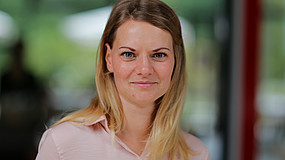An organizational sociological analysis of decision-making in SMEs linked to Katja Knauthe's successful dissertation
![[Translate to Englisch:] Prof. Hoff und Katja Knauthe mit dem frisch gedruckten Buch](/fileadmin/_processed_/4/9/csm_IMG_5746_9e5d1e545b.jpeg)
![[Translate to Englisch:] Buchcover der Dissertation](/fileadmin/_processed_/7/c/csm_Screenshot_2025-11-12_at_07-15-53_Vereinbarkeit_von_Pflege_und_Beruf_aus_Unternehmensperspektive_Eine_organisationssoziologische_Analyse_von_Entscheidungen_in_KMU_SpringerLink_b43d4f7a11.png)
Which institutional and organizational factors promote or hinder the compatibility of caregiving and work in small and medium-sized enterprises (SMEs)? This study examines the topic from two theoretical perspectives: marginal utility theory, which explains the costs and benefits of caregiving-friendly measures, and mimetic isomorphism, which describes the imitation of organizational practices as a response to uncertainty. The study is based on 43 interviews with owners of SMEs in the commercial sector. The analysis shows how decisions are made in everyday life and pragmatic solutions are developed. At the same time, it becomes apparent that care-specific measures are often considered secondary, while general support services are perceived as sufficient. Industry logic and local conditions shape these processes and, at the same time, open up expandable scope for action for SMEs through tailor-made formats and collaborations. This provides new impetus for organizational sociological research and concrete starting points for policy and practice to promote care-friendly corporate cultures.
Furthermore, the study shows that legal regulations such as the Care Leave Act and the Family Care Leave Act have so far largely excluded small businesses, thus perpetuating structural disadvantages. The concept of compatibility egalitarianism makes it clear that many SMEs prioritize equal treatment over differentiation and prefer general measures, which further complicates the development of care-specific solutions. This finding reorders common assumptions about barriers to action in SMEs.
I would like to express my special thanks to Prof. Dr. Monika Reichert (TU Dortmund) and Prof. Dr. Andreas Hoff (HS Zittau/Görlitz), who supported my doctoral studies with great professional competence, constructive feedback, and unwavering trust. They gave me the freedom to pursue my own scientific path, while encouraging and strengthening me during crucial phases. I would also like to thank the 43 micro and small businesses from the district of Görlitz, whose representatives were willing to provide insights into their operational practices, challenges, and decision-making processes. Without their openness, this work would not have been possible.
The doctoral thesis was funded by the Free State of Saxony as part of its state innovation promotion program with funds from the European Social Fund Plus (ESF+). This funding also enabled me to spend time researching at the University of Sheffield as part of the “Sustainable Care – Connecting People and Systems” project led by Prof. Sue Yeandle, which has greatly enriched my scientific perspective. I would like to express my sincere thanks to everyone who has accompanied and supported me on this journey.
